Common citrus pests, methods of control and prevention
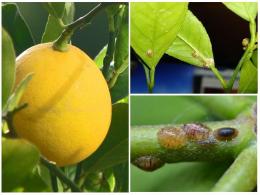
Small lemons, oranges and tangerines, grown from seeds or purchased in a store, are not a rare inhabitant of home greenhouses.
These are not particularly fastidious plants, but when caring for them, it is worth remembering what citrus pests can harm the tree and how to fight them.
Content:
- Diseases of citrus fruits in open ground, earthworms and slugs
- Scale insect on citrus fruits, how to recognize, treatment
- Traditional methods
- Lemon pests: aphids and whiteflies, control and prevention
- The most common pests of citrus fruits
- What chemical protection products can be used to treat citrus fruits?
Diseases of citrus fruits in open ground, earthworms and slugs
As a result of changing climatic conditions, in some regions it is possible to grow citrus fruits in open ground.
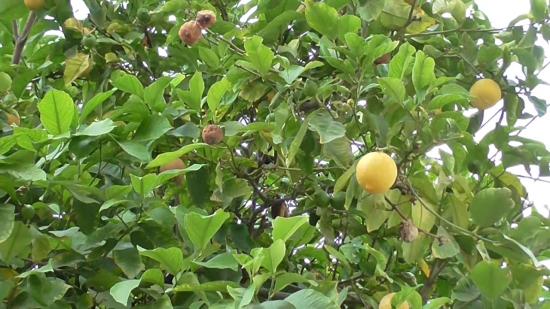
However, even in this case, it is recommended to select frost-resistant varieties for planting and take care to prevent common fungal diseases, which include those listed in the table.
| Root rot | The disease affects the root areas, loosening the structure of the stem and the upper part of the roots. Develops as a result of high humidity and lack of heat. To save it, it is recommended to constantly clean the affected area from damaged parts, shorten the branches by two-thirds and minimize the frequency and amount of watering. Ideally, it is worth transplanting it to a new place |
| Melanosis | It can be identified by the formation of deep longitudinal cracks on branches or leaves, from which an amber-colored liquid later begins to ooze. When it hardens, it becomes like glass, and when exposed to moisture, it becomes like jelly. Young plants, not yet protected by strong bark, especially often suffer from pathology. Develops as a result of a large amount of moisture and lack of heat |
| Mycospherellosis | It manifests itself as swelling on the leaves, which gradually transform into oily blisters, followed by complete fall of the foliage. To prevent the development of the problem, it is recommended to periodically remove fallen leaves, in which a large number of pathogenic microorganisms accumulate. |
| Mold plaque | As a consequence, plant damage by parasites develops and is manifested by blackening of the leaves. The best treatment for the disease is to prevent parasite attacks |
However, it is not only diseases that can make life difficult for citrus fruits.
A fairly common problem for garden plants is slug attacks. These pests are dangerous because they gnaw leaves and damage branches.
Since slugs prefer to hide in damp fallen leaves, it is recommended to periodically remove them from under bushes so as not to provoke pest attacks.
Another common problem is earthworms. They are not pests, but their excessive numbers lead to inhibition of bush growth. There is no need to poison them; just water the soil with mustard solution (a teaspoon per liter of water). The worms will crawl out, after which it is enough to collect them and move them to another area.
Scale insect on citrus fruits, how to recognize, treatment
It is not easy to recognize a scale insect infestation at the first stage; the small parasite is well hidden from humans.It is generally impossible to distinguish the larvae, but adult insects are no longer difficult to notice. They are represented by brownish tubercles on the trunks and veins of leaves. Infection often occurs through the soil with scale insect larvae; it is also possible for parasites to migrate from another, recently purchased flower.
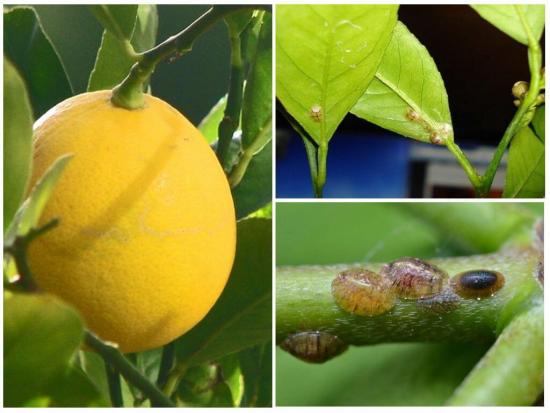
It is not easy to fight scale insects; they have a very strong shell that protects them from the effects of chemicals, so one treatment will not solve the problem. But not only chemicals will help cope with the problem.
Mechanical removal
Soak a cotton swab in alcohol or an alcohol solution and carefully wipe the areas where scale insects are located. If after this the parasites are difficult to remove, you can use a brush. It is important to carefully examine the leaves on both sides, stems and ovaries.
Chemicals
Even the most careful inspection and meticulous removal of scale insects will not be able to completely eliminate the problem, so it is recommended to pay special attention to chemicals. Two treatments with an interval of ten days will help solve the problem.
The most effective drugs are:
- Aktara is a moderately dangerous insecticide that can be used either to spray a bush or simply pour it under the root. The drug absorbed in this way will enter the body of scale insects, poisoning the parasites;
- Actellik is a broad-spectrum chemical used to kill all types of sucking parasites. It is important to consider that the drug has a rather pungent odor, so it is recommended to use it only in well-ventilated areas;
- Fitoverm is a biological type drug that is highly safe. Decomposes quickly and does not pollute the soil.The fruits that were on the citrus at the time of treatment can be eaten already on the third day after spraying.
We learn more about citrus pests and methods of combating one of them by watching the video:
Traditional methods
If insecticides cause concern, and mechanical removal of insects does not help much, it is recommended to pay attention to a mixture of 50 g of laundry soap and five drops of kerosene.
This mixture is processed lemon, after which the tree is left for several hours. During this time, the parasites should suffocate, after which the citrus must be rinsed well with clean water.
When processing, it is important to combine a folk recipe and mechanical removal of parasites to achieve maximum effect and prevent the possibility of re-infection.
Lemon pests: aphids and whiteflies, control and prevention
The most famous pest is the aphid. The small insect, whose color can range from black to green, attacks young foliage, buds and flowers. In addition to sucking juices, aphids carry many diseases.
Aphids are localized on the underside of leaves. A homemade lemon can get infected through a new flower that has already been infected or an ordinary bouquet of chrysanthemums, roses or other flowers.
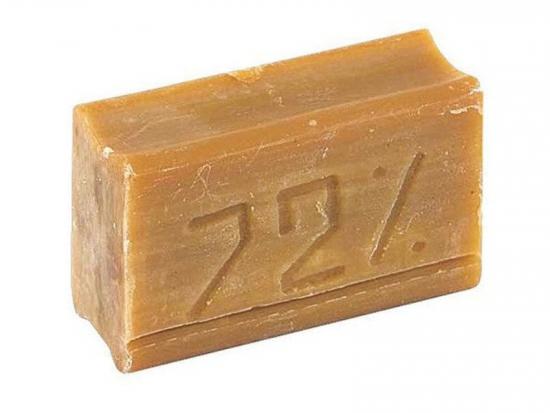
To combat parasites, you can use both specialized insecticides and folk remedies:
- A solution of laundry soap (30 g) in a liter of water. In this case, it is not advisable to allow the solution to get on the soil. After this treatment, you can use insecticides or additional folk remedies;
- Mustard infusion - dilute 70 g of dry mustard in a liter of water and let it brew for three days, then dilute the slurry in the ratio of one part mustard mixture to three parts water and sprinkle on the lemon;
- Onion infusion - pour 30 g of onion peel into a liter of water and let it brew for five days. Sprinkle the resulting infusion over the lemon;
- Infusion of tomato tops - pour 0.5 kg of green tops with a liter of water and boil for half an hour over low heat. Allow to cool, filter and dilute before use in a ratio of one to three;
- An infusion of dandelion roots (30 g) and leaves (50 g) - pour the raw material with a liter of warm water and let stand for four hours, then filter and spray the tree.
Solutions of onion peel, dandelion and mustard are also effective in the fight against spider mites. However, it is important to understand that if traditional methods do not help, it is recommended to pay attention to insecticides.
Another common parasite of lemons is whiteflies. White butterflies that are localized on the lower part of the leaf, where the larvae are laid.
It is these larvae that harm the lemon by sucking out the juices. Particularly severe damage is caused to flowering lemons, since as a result of such attacks the lemon sheds its ovaries.
Whiteflies are a fairly serious pest, but getting rid of them is not that difficult. Ordinary fly stickers will help get rid of butterflies, and larvae can be easily removed with simple running water.
Whitefly damage can be prevented using special insecticides based on cypermethrin (Alatar, Tarnek). As a last resort, you can use folk remedies - tobacco infusion or ash. To prepare it you will need to mix 20 g of wood ash, 50 g of laundry soap and 10 liters of water.
Prevention of damage is the best method of therapy. A plant protected from parasites is resistant to pest attacks and brings much less trouble.
The most common pests of citrus fruits
In addition to aphids, scale insects and garden slugs, citrus fruits can also suffer from other insects, which will not please any gardener. And in order for the fight against them to be as effective as possible, you need to know the enemy by sight.
Mealybug
Externally, the insects resemble large aphids, and aphids reproduce very quickly, suck sap and leave sticky secretions, from which a fungus often develops.
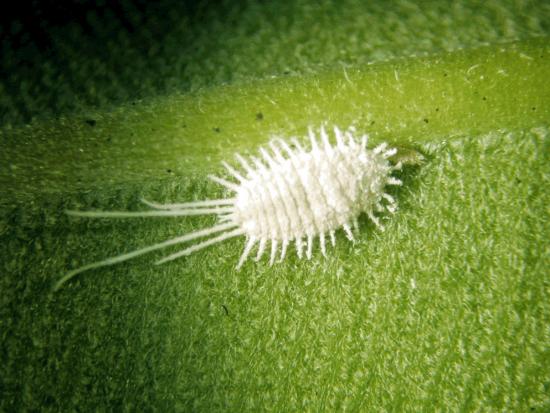
Scale insects are the most common problem faced by lemon gardeners. In order for the fight against them to be as effective as possible, it is recommended to start it from the very first signs of infection.
You can determine the presence of a problem by the loose white coating that appears on the leaf blades.
Citrus nematode
The particular danger of this pest is due to the fact that this pest does not attack the upper part (foliage and branches), but the root. It is almost impossible for a person to notice these microscopic worms, so at first it can be difficult to determine the problem.
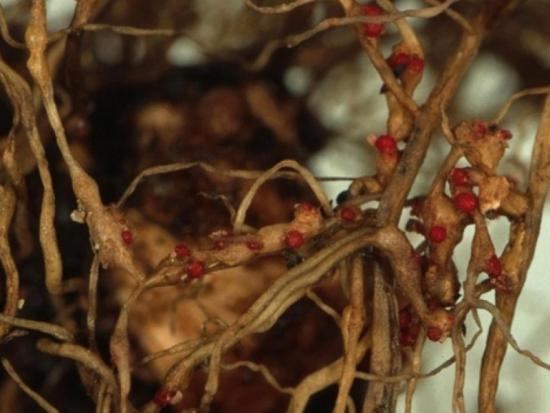
Since nematodes feed on root sap, over time the root system may die as a result of the development of necrosis. The result of this is noticeably reflected in the above-ground part of the plant - the leaves begin to wither and fall off, and development is inhibited.
If you do not completely disinfect the soil, roots, and even the pot, the plant will die.
Greenhouse thrips
These parasites are equally dangerous, both in the form of larvae and adults. Thrips infestation can be determined by the silvery marks that remain on the foliage as a result of the movement of the insect.
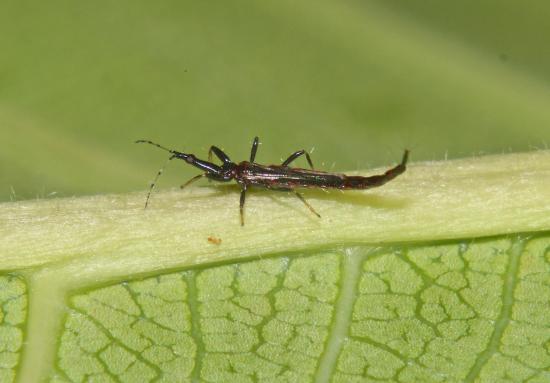
As a result, the leaves lose color and crumble, the flowers become deformed and dry out, and overall tree growth slows down.If you do not treat the plant in time, there is a danger of losing the lemon.
Spider mites: preventive measures
Spider mites are a problem that affects not only citrus fruits, but all indoor plants. Conditions of high temperature and dry air are considered especially favorable for the development of parasites.
They multiply and settle on the lower part of the leaf, leaving white dots and holes that are formed as a result of biting. Over time, the blades become covered with yellow spots, and young leaves become covered with cobwebs, causing them to curl.
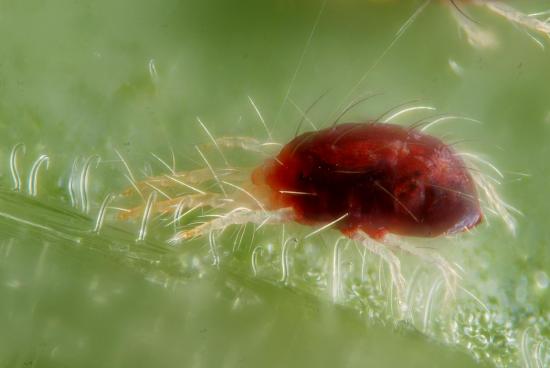
The tree weakens, the leaves fall off and the number of fruits decreases significantly.
One of the best methods of controlling spider mites is prevention. Since these insects love warm, dry air, it is important to prevent lemons from drying out.
Carry out systematic spraying, especially in winter, and do not forget about timely watering.
In addition to regulating the microclimate, it is recommended to irradiate lemons with an ultraviolet lamp once a week for two minutes. This will help to significantly reduce the number of mites, if any, and increase the defense capacity of the plant’s immune system.
Aphids on lemons, how to deal with them
First sign plant infestation by aphids - sticky leaves and green bugs. Aphids feel very good in warm and humid air, so don’t be too zealous with moisture.
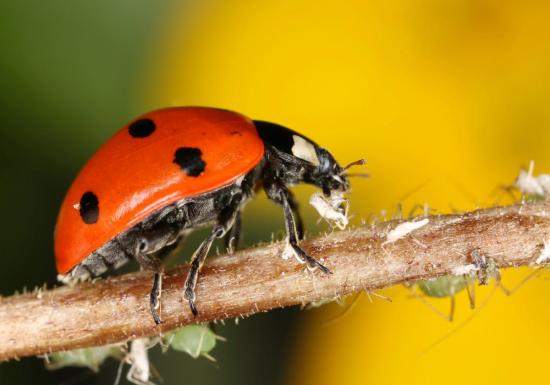
Depending on the degree of damage, the methods of control differ:
- If the lesion is large enough, it is recommended to use insecticides after mechanical removal of pests;
- You can identify the pot as the habitat of ladybugs, which are the natural enemies of aphids;
- Place geranium next to the lemon.Aphids do not tolerate strong odors well; geranium can be replaced with peppermint or plain garlic - the result is the same. However, it is important to consider that this product does not destroy, but repels insects;
- Ash - a mixture of ash with a solution of laundry soap can be used to wash or treat foliage.
- Whatever method is chosen, after the event it is recommended to spray the citrus with Epin. This will help minimize stress on the tree.
Even more useful information about citrus pest control is in the video:
What chemical protection products can be used to treat citrus fruits?
There are a huge number of insecticides that are used to control pests of indoor plants. However, since citrus fruits bear fruit, it is worth selecting means for processing them, taking into account the fact that the fruits will then be consumed by humans.
Among the most common insecticides are:
- Dichlorvos is a budget option that should be used with extreme caution. It is not recommended to spray; just cover the plant with a bag and place a cotton wool sprayed with dichlorvos there. Leave for two hours, then rinse under running water;
- Iskra Zolotaya is a broad-spectrum preparation that is safe for soil microflora, so there is no need to additionally cover the substrate during processing and does not harm the plant itself. However, after use it is still recommended to thoroughly ventilate the room;
- Fitoverm is a broad-spectrum product; it is recommended to carry out treatment several times a week. This will help destroy not only adult parasites and larvae, but also egg laying.

You should take a serious approach not only to the choice, but also to the use of the product.Failure to follow safety rules can negatively affect a person’s well-being.
Since citrus fruits are often planted as indoor flowers, they are not spared from all the troubles of indoor plants.
There are a large number of pests, but noticing the problem in time and choosing the right means of control will help prevent the death of citrus.

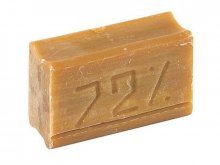

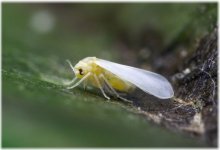
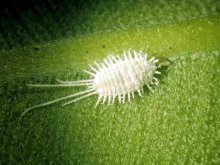

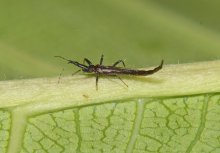
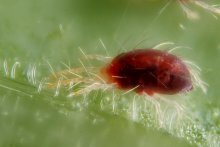
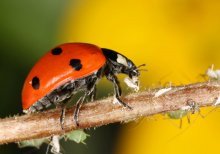


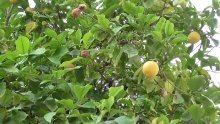




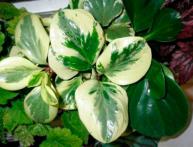



Comments
Most often, the lemon bushes that grew on my windowsill died from mold or mildew. Of course, I did not try to use strong poisons, we are talking about a living space, and geranium or laundry soap did not help.
We had a lemon growing in our room for about ten years and dried up. I didn't know what to do or how to cure the plant. Judging by the description in the article, this is root rot and it was necessary to reduce watering and transplant the lemon into another pot.